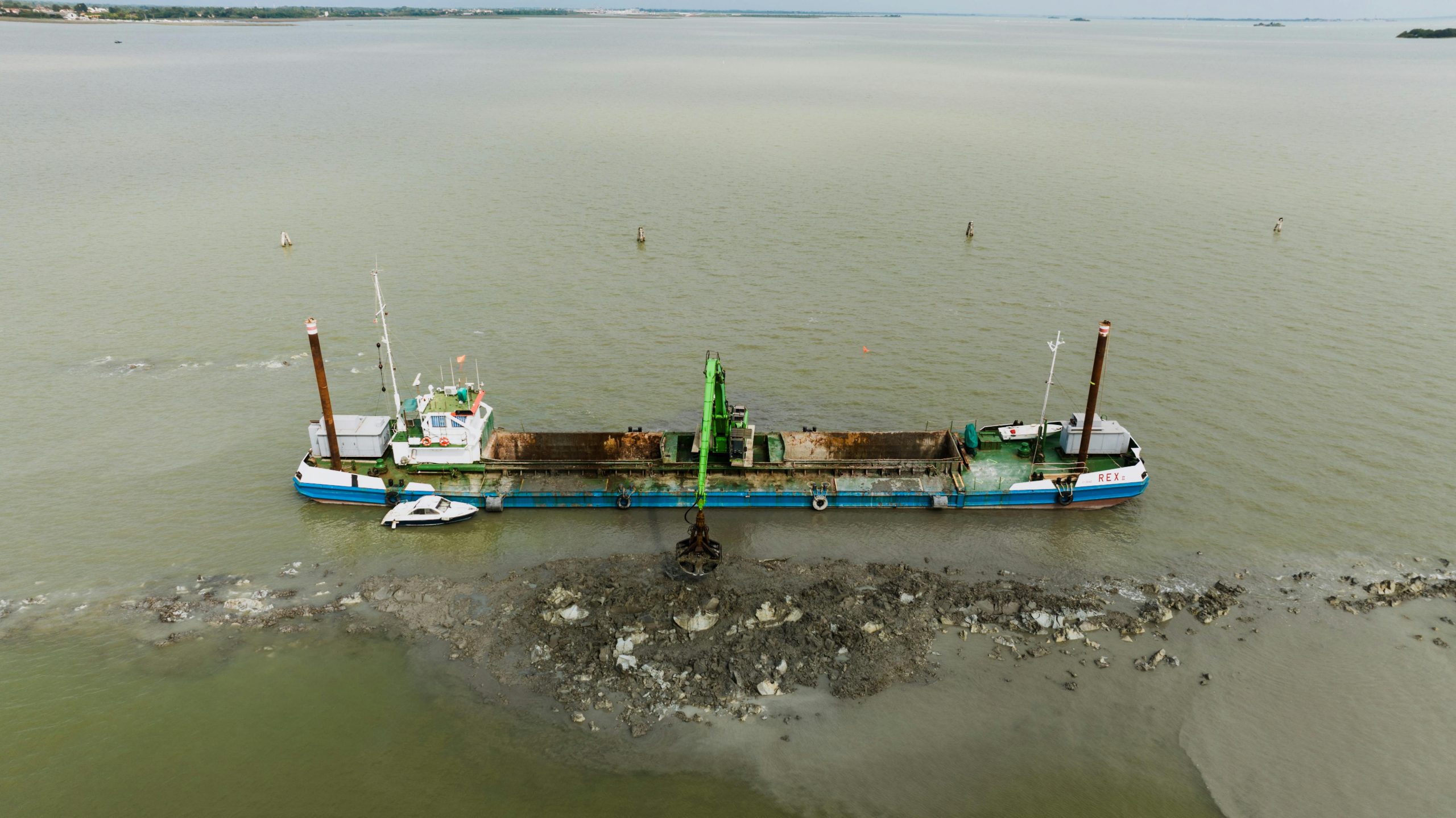
Zeekoevlei Dredging Project: Restoring Cape Town’s Vital Waterway
The Zeekoevlei Dredging Project in Cape Town represents a major environmental initiative aimed at restoring the health of one of the city’s most important water bodies. The project focuses on removing accumulated silt and debris from the lake, which has been affecting water quality and aquatic ecosystems over the years. By addressing these challenges, the project ensures that Zeekoevlei can continue to support both wildlife and the surrounding community.
Environmental experts emphasize the importance of maintaining healthy water systems, noting that the Zeekoevlei Dredging Project sets a benchmark for sustainable water management. The removal of sediment not only improves water flow but also enhances the oxygen levels necessary for aquatic life. This process contributes to the revitalization of biodiversity in and around the lake, benefiting fish, birds, and plant species that rely on a balanced ecosystem.
Community involvement is another critical aspect of the Zeekoevlei Dredging Project. Local residents and environmental organizations participate in monitoring water quality, supporting conservation efforts, and raising awareness about the importance of maintaining clean and healthy waterways. By engaging the community, the project promotes environmental stewardship and ensures long-term sustainability.
Zeekoevlei Dredging Project: Enhancing Environmental Quality
The primary goal of the Zeekoevlei Dredging Project is to enhance the overall environmental quality of the lake and surrounding areas. Accumulated sediment, waste, and invasive plant species have historically hindered water quality and aquatic health. Through systematic dredging, the project restores natural water flow, reduces pollution, and mitigates the risk of flooding during heavy rains.
Environmental scientists note that improved water quality has cascading effects on the entire ecosystem. Clearer, cleaner water supports a wider variety of aquatic organisms, stabilizes fish populations, and allows native plants to thrive. In addition, the project contributes to climate resilience by supporting wetlands that naturally absorb and filter water, reduce erosion, and regulate local temperatures.
The Zeekoevlei Dredging Project also serves as a model for urban environmental management. Cities facing similar challenges can learn from Cape Town’s approach, demonstrating that strategic intervention in urban waterways can yield both ecological and social benefits. Investors and public stakeholders recognize the project as a forward-thinking initiative that aligns with global sustainability goals.
Zeekoevlei Dredging Project: Supporting Local Communities
Beyond environmental benefits, the Zeekoevlei Dredging Project has significant implications for local communities. The restoration of the lake creates opportunities for recreational activities such as boating, fishing, and nature walks, enhancing the quality of life for nearby residents. Improved access to clean and safe water also supports community health initiatives and reduces the risk of waterborne diseases.
Employment opportunities generated by the project extend to dredging operations, environmental monitoring, and community engagement programs. Local contractors and laborers gain valuable experience, contributing to skill development and economic empowerment. These initiatives demonstrate that environmental projects can have a direct, positive impact on social and economic dimensions within urban areas.
Stakeholders, including government agencies and environmental NGOs, collaborate closely to ensure that the Zeekoevlei Dredging Project meets both ecological and community objectives. The integration of technical expertise and local knowledge ensures that interventions are effective and sustainable, setting a precedent for similar projects across South Africa and beyond.
Zeekoevlei Dredging Project: Promoting Biodiversity
The Zeekoevlei Dredging Project plays a crucial role in promoting biodiversity within the Cape Town region. By removing excessive sediment and invasive species, the project allows native flora and fauna to flourish. Fish populations, aquatic plants, and bird species that rely on the lake’s ecosystem have already shown signs of recovery. Conservationists emphasize that maintaining a diverse biological community is essential for ecological balance and the resilience of natural systems.
Restored habitats around Zeekoevlei also support migratory birds and endangered species, creating opportunities for scientific research and eco-tourism. By integrating environmental management practices with recreational use, the project ensures that human activity does not compromise ecosystem health. These measures enhance public appreciation of local wildlife and encourage community participation in ongoing conservation efforts.
Investors and stakeholders recognize that projects like Zeekoevlei Dredging Project strengthen environmental governance and demonstrate Cape Town’s commitment to sustainable urban planning. The positive ecological impact reinforces public trust and encourages support for similar initiatives across the region.
Zeekoevlei Dredging Project: Addressing Water Management Challenges
Effective water management is a central objective of the Zeekoevlei Dredging Project. Over the years, sediment accumulation and blockages have reduced the lake’s capacity to handle seasonal rainfall, increasing the risk of flooding in nearby communities. Dredging restores water flow and ensures that excess water can be safely directed, minimizing environmental damage and property risk.
Enhanced water management also improves water quality for local communities and wildlife. By controlling pollutants and maintaining consistent water levels, the project reduces health risks and supports recreational activities. This proactive approach demonstrates that environmental interventions can provide long-term benefits to both human populations and natural ecosystems.
Government agencies and environmental planners monitor the progress closely, using data-driven strategies to optimize dredging schedules and resource allocation. The integration of scientific research ensures that interventions are effective, sustainable, and aligned with broader water management policies in Cape Town.
Zeekoevlei Dredging Project: Economic and Educational Benefits
The Zeekoevlei Dredging Project offers economic and educational benefits in addition to environmental improvements. Local businesses benefit from increased tourism, recreation, and community events around the restored lake. Suppliers, contractors, and service providers engaged in the project gain steady income and opportunities to expand their operations.
Educational institutions also benefit from the project, as schools and universities use Zeekoevlei as a living laboratory for environmental science and water management studies. Students gain hands-on experience in ecology, conservation, and project management, fostering the next generation of environmental professionals. The collaboration between government, academia, and local communities highlights the multifaceted impact of such initiatives.
These economic and educational outcomes demonstrate that the Zeekoevlei Dredging Project is more than an environmental effort; it is a comprehensive initiative that strengthens community resilience, encourages sustainable practices, and provides tangible benefits to stakeholders across Cape Town.
Zeekoevlei Dredging Project: Community Engagement and Participation
Community engagement is a core component of the Zeekoevlei Dredging Project. Local residents are actively involved in monitoring water quality, reporting environmental issues, and participating in cleanup activities. This involvement fosters a sense of ownership and responsibility among community members, ensuring that the benefits of the project are maintained over the long term.
Workshops and awareness campaigns educate residents about sustainable practices, pollution reduction, and habitat preservation. These programs empower individuals to contribute meaningfully to the project while building a culture of environmental stewardship. By integrating community participation into the project framework, Cape Town ensures that Zeekoevlei remains a sustainable and vibrant ecosystem.
Investors and policymakers note that community-driven initiatives enhance the credibility and impact of environmental projects. When residents are actively engaged, the likelihood of project success increases, reinforcing public confidence and encouraging further investment in similar urban ecological initiatives.
Zeekoevlei Dredging Project: Technological Innovations in Dredging
The Zeekoevlei Dredging Project utilizes cutting-edge technology to maximize efficiency and minimize ecological disruption. Advanced dredging equipment allows precise removal of sediment while protecting aquatic life and plant habitats. Remote sensing and monitoring tools track water quality, sediment levels, and biodiversity, providing real-time data for project managers.
These technological innovations improve operational safety, reduce environmental risks, and accelerate project timelines. The use of data-driven approaches ensures that interventions are targeted, effective, and aligned with ecological sustainability goals. Stakeholders recognize that such innovation sets a benchmark for future urban water management projects.
By combining technology with expert planning, the Zeekoevlei Dredging Project demonstrates that modern environmental initiatives can achieve both ecological restoration and community benefits efficiently. This approach strengthens Cape Town’s reputation as a leader in sustainable urban development.
Zeekoevlei Dredging Project: Looking Ahead
As the Zeekoevlei Dredging Project progresses, the focus shifts to long-term sustainability and ongoing maintenance. Regular monitoring, community involvement, and continued investment are key to ensuring the lake remains healthy and vibrant. Cape Town’s experience provides valuable lessons for other urban areas facing similar environmental challenges.
For further insights on environmental projects and community-driven initiatives in South Africa, explore our detailed report on recent environmental reports in Africa. International resources about sustainable water management can also be found at UN Water Cooperation 2015.
The Zeekoevlei Dredging Project stands as a model for balancing ecological restoration, technological innovation, and community engagement. Its success highlights the positive impact that well-planned urban environmental initiatives can have on biodiversity, local communities, and sustainable development.


